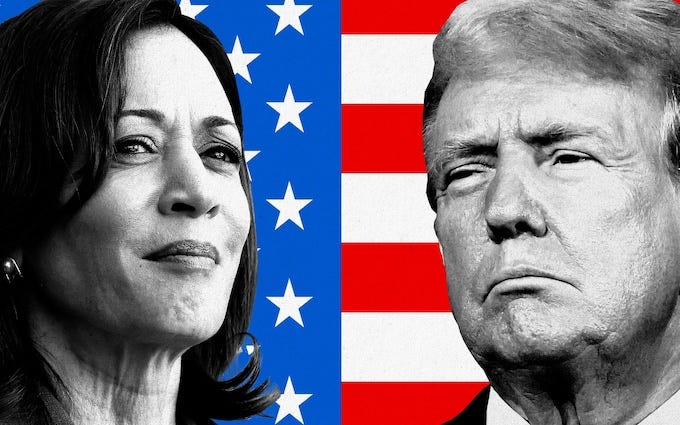
Later tonight, Kamala Harris and Donald Trump will finally come face-to-face on the debate stage. The event, which is going to be streamed on ABC News, is not just going to be the first time that the two candidates ever meet personally, but could also serve as a pivotal moment for both of their campaigns.
In this election’s first presidential debate, which was held when President Joe Biden was still expected to be at the top of the Democratic ticket, Biden’s lackluster performance ultimately led to him stepping down and endorsing Harris. This almost assuredly puts a lot of pressure on Harris and her campaign, as even the slightest misstep could put them in jeopardy.
Do Presidential Debates Matter?
It has long been understood that presidential debates have a minimal impact on viewers and the way they vote on Election Day.
Even the first televised debate in 1960, which was between Richard Nixon and John F. Kennedy, gives insight into just how shallow debates can be. In its aftermath, there was a divide between who viewers believed had won— not because of partisan division, but because of the how they tuned into the event. For those who had watched it on T.V., Kennedy was the clear winner as his complexion looked better than Nixon’s, who wasn’t wearing makeup and was sweating. However, to those who listened to the debate over the radio, Nixon was the winner based on substance alone.
Though tens-of-millions of people now watch the presidential debates on television instead of listening to them via radio, the dynamics of the debates aren’t all that different from 1960.
For better or for worse, the American political environment is in a heightened state of polarization, leaving less common ground between Democrats and Republicans as they become increasingly distant from one another. Even among those who identify themselves as “independents,” an overwhelming majority (81%) of them still ultimately lean toward one of the two major parties.
Most people already know who they’re going to vote for, so a presidential debate that is proven time and again to cater to vibes is unlikely to sway any of them. That being said, both Harris and Trump need to court the few true independents to their side.
How to Win Undecided Voters
Trump and his team have the easy part: ragging on the current administration. Most Americans already express dissatisfaction with the federal government, and Trump is still running as an “outsider,” meaning he is still seen as a breath of fresh air from the ill-favored establishment.
As for Harris, even though incumbents tend to have an advantage in elections, she can only loosely claim it for herself. Unlike Biden, whether fair or not, she can’t fully own the accomplishments of their administration. At the same time, she is still subject to the same scrutiny of the administration’s shortcomings, such as its inability to pass a comprehensive border bill— even if it was blocked by Republicans.
That being said, Harris can still use tonight’s debate as a platform to pave a new way forward. Her campaign has already been doing this with its messaging (i.e., “we’re not going back”), but it has been lacking in substance. While she has made proposals on both housing and capital gains tax rates, these are hardly issues that the typical voter is paying attention to.
Vibes Aren’t Everything
Vibes aren’t a new phenomenon in elections — the idea of the “low-information voter” has always been a thing — but it was never to this degree.
Samuel Popkin, a political scientist from the University of California, San Diego, grappled with this concept in his book, The Reasoning Voter. In it, he states that voters typically employ “low-information rationality,” and rather than disregarding candidates and their respective policies, they truncate information into easy-to-understand chunks, making them well-informed when it comes time to vote.
Popkin states that voters gather their information through various outlets: 1) daily life; 2) government programs; and 3) the news. This could be something as simple as recognizing that groceries cost more than they used to, finding out about a government loan program, or watching a debate on television (see what I did there?).
Even if debates are used for theatrics and to produce memorable clips, it’s still a setting where both candidates are being asked questions on policy. Harris began her bid for the Oval Office nearly two months ago, and is only just beginning to get to the brass tacks.
If she wants to keep her momentum, which seems to be waning, she will not just use tonight as a time to distance herself from Trump, but also as an opportunity to show voters what her presidency and vision for America looks like.





Very Well written! Should be a interesting debate!